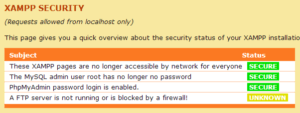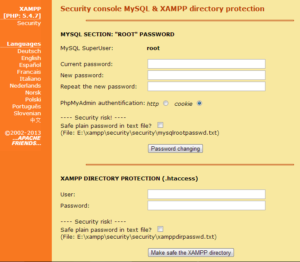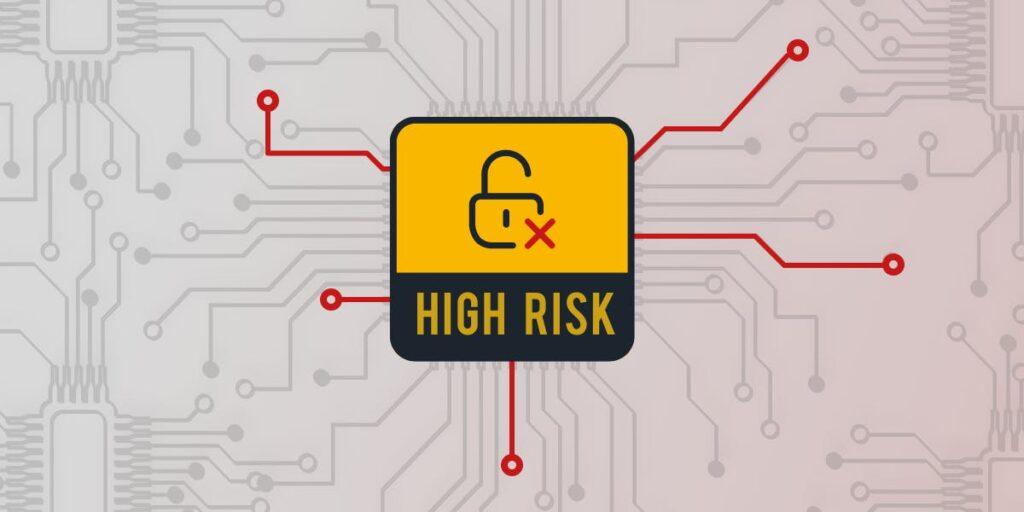OpenEMR operates as an open-source electronic health record (EHR) and practice management system that provides services to healthcare providers across the global world. The safety of OpenEMR requires top priority because it protects delicate patient information while fulfilling necessary regulatory standards.
Since its inception OpenEMR developers have worked on resolving different security issues in the system. Researchers established crucial vulnerabilities during 2018 which exposed unauthorized users to medical record systems. The system received quick response to authentication bypasses and SQL injection vulnerabilities that researchers discovered in 2018. In 2023 researchers identified three vulnerabilities that allowed attackers to steal patient information while compromising IT infrastructure. The identified problems received fast resolution through software updates.

The security and compliance improvement of OpenEMR benefits from the specialized services Qiaben Health provides.
OpenEMR Secure Hosting enables healthcare institutions to maintain protected data storage facilities that meet all healthcare regulatory standards.
SSL Implementation enables users to communicate securely with the server by encrypting their data transmissions thus protecting sensitive information.
The system includes data backup services that run automatic backups both to preserve vital information and support emergency recovery operations.
OpenEMR System Upgrades alongside Customization functionality enables users to maintain the latest security updates and develop specific features that fulfill industry compliance needs.
Through these service implementations healthcare providers can preserve a reliable OpenEMR system with strong security features and full compliance to protect patient information confidentiality and integrity.
Is OpenEMR HIPAA Compliant? What You Need to Know
As an open-source electronic medical record system OpenEMR enables healthcare providers to handle patient records together with scheduling and billing operations along with other administrative tasks. OpenEMR contains HIPAA-compliant configuration features including access controls and encryption alongside audit logs but the healthcare provider must execute correct implementation and maintenance to reach complete compliance. The system’s compliance to HIPAA requirements needs to be checked by regular security risk assessments while working with Qiaben Health as a service provider enables additional customization and protects system security. OpenEMR can achieve HIPAA compliance through configuration though the responsibility for maintaining full compliance rests entirely with organizations implementing the system.
OpenEMR Encryption & Backup Strategies for Data Safety
Securing OpenEMR is vital to protect patient data and maintain compliance with healthcare regulations. Implement the following measures to enhance security:
1.Strong Password Policies: All user accounts must have complex passwords containing uppercase and lowercase letters as well as numbers and symbols. This requirement applies especially to administrative accounts. Regularly update these passwords.
2.Database Security: Assign a robust root password for MySQL/MariaDB. The OpenEMR user must receive database privileges which only extend to the OpenEMR database.
3.PHP Configuration: The security of OpenEMR depends on following both the supported PHP version guidelines while also implementing PHP settings as recommended by the OpenEMR community.
4.Secure Hosting Environment: Post-installation users should configure the Security Console of XAMPP-type platforms to solve default security problems in the system.
5.Access Controls: Patient information accessibility should be controlled through role-based permission systems which grant access only to authorized medical staff.
6.Regular Updates and Patches: Users must frequently check for OpenEMR releases and install security updates at once to counteract disclosed system.
By diligently applying these practices, you can significantly enhance the security of your OpenEMR system and safeguard patient data effectively.
How to Perform a Security Audit on Your OpenEMR System
Conducting a security audit on your OpenEMR system is crucial for safeguarding patient data and maintaining compliance with healthcare regulations. Here’s how to perform a comprehensive audit:
1.Review Audit Logs: OpenEMR audit logs should be examined periodically for user activity assessment including login access to patient records together with modifications to those records. The audit logs help reveal both unauthorized activities and security breach indications.
2.Assess User Access Controls: The system should have its user access roles and permissions correctly set up. The assignment of sensitive information access should follow job responsibilities in order to reduce possible data exposure incidents.
3.Verify System Updates: OpenEMR and each associated software package must stay updated. System security receives improvements from regular updates which also fix documented vulnerabilities.
4.Evaluate Physical Security: OpenEMR servers together with workstations must be located in restricted access areas for security reasons. Users must have access to environmental protection systems that shield against physical risks.
5.Test Data Backup and Recovery: Organizations must execute routine backup processes and perform tests on the validity of stored data backups. The established recovery protocols should demonstrate their capability to preserve data accessibility in case of unexpected circumstances.
Ensuring OpenEMR Meets US Healthcare Compliance Standards

It is essential to verify that OpenEMR satisfies all U.S. healthcare compliance requirements to protect patient data and fulfill regulatory demands. The designed security measures in OpenEMR for HIPAA compliance include both encryption technologies and access control systems which protect patient data. OpenEMR holds Office of the National Coordinator (ONC) certification which demonstrates its active pursuit of complying with federal healthcare requirements. Through its customizable workflow features OpenEMR enables medical providers to customize their system according to their clinical requirements which improves operational efficiency as well as regulatory acceptance. OpenEMR requires regular updates together with maintenance activities to stay compliant with advancing standards which protects patient information and upholds U.S. healthcare regulations.







